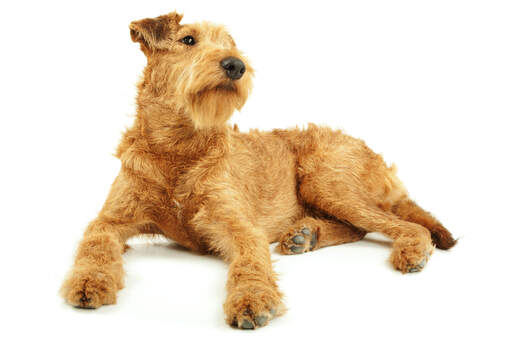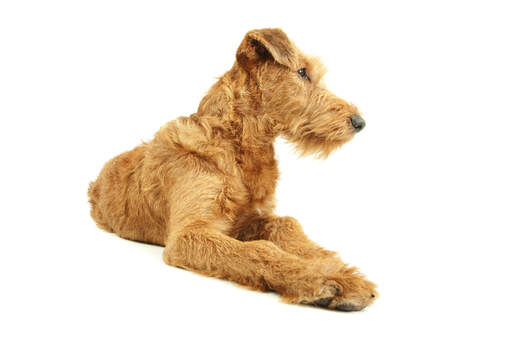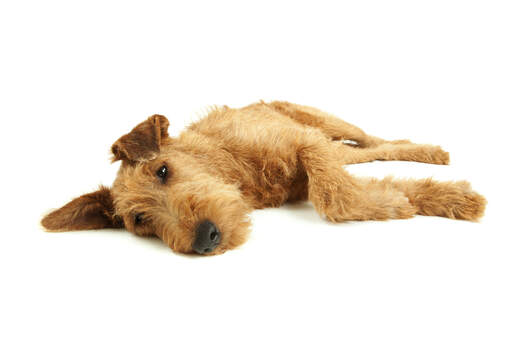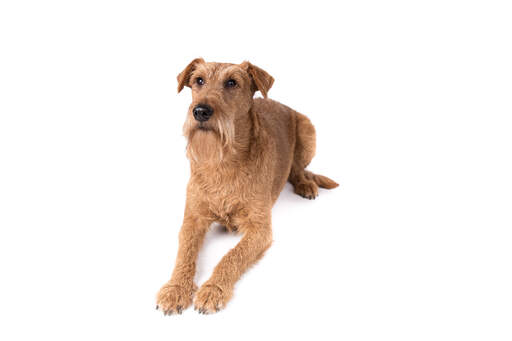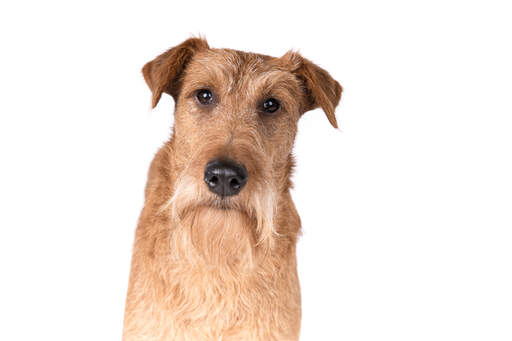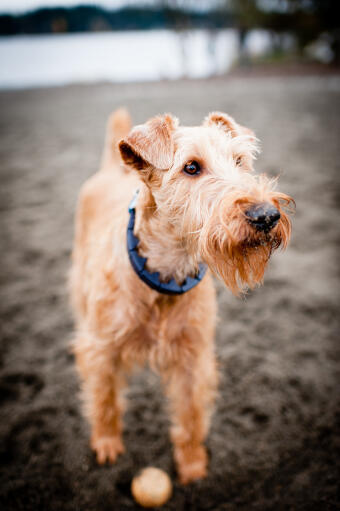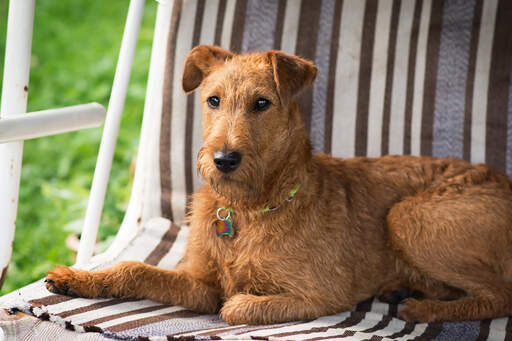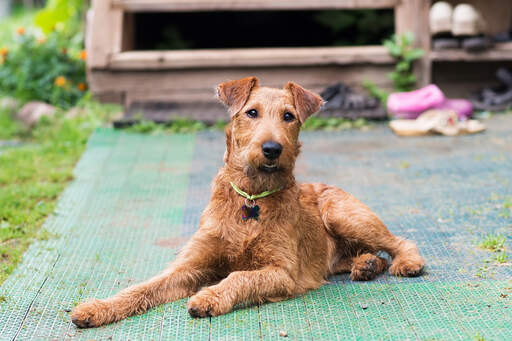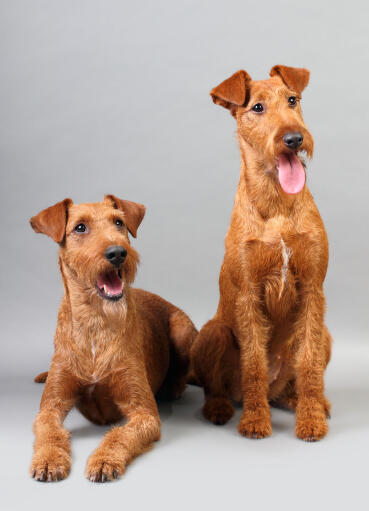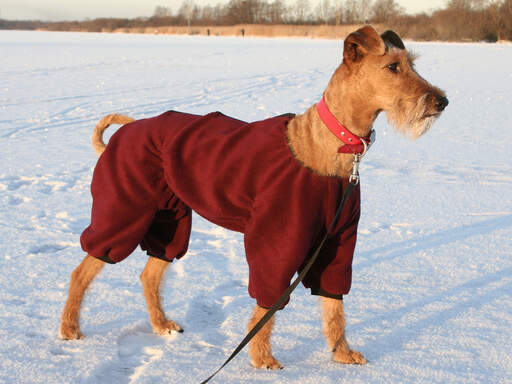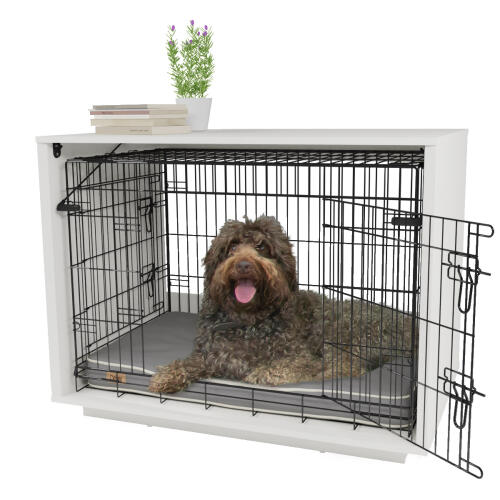Irish Terrier Dogs










Breed Rating (2 Reviews)
| Appearance | |
| Friendliness | |
| Hardiness | |
| Garden |
History
The Irish Terrier is thought to be one of the oldest terriers around, although it was only officially discovered and recognized as a breed in the 1870s. It was common practice in the UK to crop the ears of working terriers, but in 1889 the Irish Kennel Club required all dogs born after a certain date to have their ears fully intact. This led to a full ban of ear cropping in Great Britain. Irish Terriers played an important role in World War I, being used to carry messages in the trenches and were highly praised for their working ability. Nowadays they are rarely seen outside of shows and competitions.
Behaviour
The Irish Terrier is a loyal, fearless and hard working dog. They are devoted to their family and will make great companions. They get along well with children and will also get on well with cats if raised together. Whilst in general they are gentle and kind dogs, any rodents in the house don’t stand a chance. They can become aggressive towards dogs of the same sex and will never back dopwn if challenged or provoked. Early socialization with other people and dogs will help curb this problem somewhat.
Puppy classes and later on obedience classes are recommended for this breed. Irish Terriers are very smart yet stubborn dogs and will only learn something new if they feel that they will get something in exchange. Praise, food and toys will all act as good incentives for their training, but you will have to be creative and keep things fresh, as they will get bored of the same routine over and over again. Keep it short and simple for the best results. If they put their mind to it they are quick learners. Irish Terriers are vocal dogs, so the quiet command should be one of the first on your list of things to teach them.
Some Irish terriers love to dig, others not so much. It’ll be in your best interest to have a fenced off area or a place where they can play and dig without it causing too much grief to you and your garden. Being terriers, they have a natural instinct to hunt and catch small furry creatures. The recall command can be quite tricky with them, as once they are in pursuit of something, they rarely give it up. Their recall will get better with time, but we’re talking years here, not months. They enjoy exercise and do well in agility competitions.
Their dense, wiry coat should be brushed weekly and stripped twice a year. If the ciat is clipped it will lose its color and become less weather resistant. Irish Terriers are tough dogs which rarely fall ill. This being said, they are really good at hiding any illness/injuries they may have, meaning you may have to keep an eye on them, for any unusual behaviour.
Temperament
Plucky and courageous best describes this breed’s temperament. They have a strong character that will be assertive and independent without regular, reward-based training. This breed may show aggression to other dogs and small animals as they prefer to have all your attention and will get jealous if this is not the case.
Overall great with children, well mannered indoors and a great companion, the Irish Terrier will make a great addition to many a household.
Health Problems
Irish Terriers can be prone to illnesses including cystinuria (an inherited kidney disease that can cause urinary stones), progressive retinal atrophy (PRA: degeneration of the retina which can lead to blindness), and allergies.
Breed Details
- Status: Common
- Life Expectancy: 13 - 14 years
- Weight: 24 - 27 Ibs
- Height: 13 - 14 years
- Rare: No
- Coat: Medium
- Grooming Requirements: More than once per week
- Town or Country: Either
- Minimum Home Size: Small House
- Minimum Garden Size: Small to Medium Garden
- Breed Type: Pest Control Dog
- Size: Medium
- Energy Level: Medium
- Exercise Required: Up to 1 hour
Irish Terrier Pictures
Latest Reviews For Irish Terrier (2 of 2)
Brilliant - Karen,
My Irish is 7 years old he is the best trained dog I have ever owned . He loves to please and follows me everywhere. He as never had a days illness in his life. He does however dribble when excited,when people fuss him on arrival. He is remarkable with children,however taken a dislike to German shepherds (no idea why) placing him on the lead when one approaches combats this. He is a family dog, and a fantastic watch dog He sounds aggressive but defiantly not.
Our irish terrier is a feisty, opinionated member of our household. - Susan,
We have had our Irish for four years, she is very loyal, because of her coat, which we only strip twice a year, she is clean. She loves to swim and be in the field with the horse. She has a trapped sciatic nerve and various ailments so I cannot agree that they have few illnesses. She is a fantastic dog around children and enjoys playing a doggy day care at least once a week where she happily runs with up to 60 other dogs.

